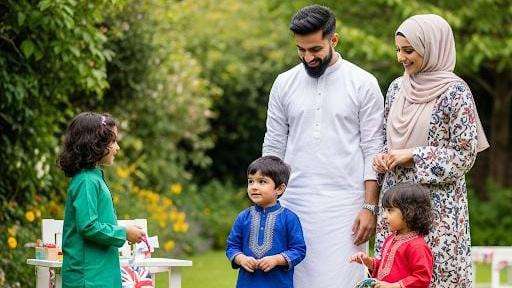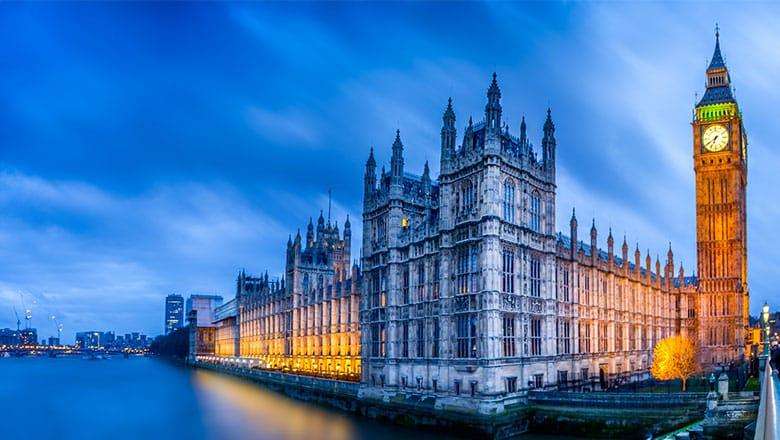Islamic finance, particularly in the realm of Sharia-compliant home purchase plans, often referred to as Islamic mortgages, is experiencing significant growth and moving firmly into the mainstream of the UK's financial services sector. Driven by ethical considerations, competitive offerings, and a growing understanding of its unique structure, these finance options are increasingly appealing to a wider demographic, extending beyond just the Muslim community.
Is Islamic Finance Truly Halal? Understanding the Core Principles
The fundamental principle underpinning Islamic finance is the prohibition of riba (interest). This makes conventional mortgages, which are inherently interest-bearing, non-compliant with Sharia law. Islamic finance providers, therefore, employ alternative structures to facilitate homeownership without violating this core tenet.
The key to their halal nature lies in the shift from a debtor-creditor relationship, as found in a traditional mortgage, to a partnership or asset-backed transaction. The most common models in the UK include Murabaha, a cost-plus agreement where the bank purchases the property and sells it to the customer at a pre-agreed, higher price; Ijara, a lease-to-own arrangement where the bank leases the property to the customer with payments covering both rent and a portion towards ownership; and Musharaka, a co-ownership model where the bank and customer jointly purchase the property, with the customer gradually buying out the bank's share.
These models ensure that profit is generated through genuine trade and investment in tangible assets, rather than simply through the lending of money. Furthermore, Islamic banks are prohibited from investing in industries deemed unethical or haram, such as alcohol, tobacco, gambling, pornography, and arms. This commitment to ethical investment further reinforces their Sharia-compliance. Sharia Supervisory Boards, composed of scholars knowledgeable in Islamic finance, oversee the products and operations of these institutions to ensure adherence to Islamic principles.
Impact on the UK Market and Sharia-Compliant Savings
The growth of Islamic finance is significantly impacting the UK financial landscape. The UK is recognized as the leading centre for Islamic finance in the West, with several fully Sharia-compliant banks licensed and operating. The UK Islamic Finance Market size was estimated at USD 7.49 billion in 2024 and is projected to reach USD 7.73 billion in 2025, with a Compound Annual Growth Rate (CAGR) of 3.12% to reach USD 9.02 billion by 2030. This demonstrates a steady and promising expansion.
Sharia-compliant savings accounts are also gaining traction. Instead of paying interest, Islamic banks offer an 'Expected Profit Rate' (EPR). This EPR represents the anticipated profit generated from the bank's Sharia-compliant investments, which are then shared with savers. While the EPR is a target and not guaranteed, instances of reduction are rare. These accounts are also protected by the Financial Services Compensation Scheme (FSCS) up to £85,000 per person, per banking institution, just like conventional bank accounts, assuring savers of the security of their funds.
How Islamic Mortgages Differ from Traditional Mortgages
The core difference between an Islamic home purchase plan and a traditional mortgage lies in the underlying financial mechanism. A traditional mortgage involves the lending of money at interest (riba), where the borrower owns the property and the bank holds a lien, with payments consisting of principal and interest. Risk is primarily borne by the borrower.
In contrast, an Islamic mortgage is based on asset-backed transactions, profit-sharing, or leasing. Ownership often begins with the bank and customer co-owning the property, or the bank owning it initially, and payments involve rental components plus capital acquisition or a profit margin. Risk is shared between the institution and the customer, and there is a strict adherence to Sharia principles, prohibiting investments in harmful industries.
Cost Comparison: Are Islamic Mortgages More Costly?
Historically, Islamic mortgages were perceived to be more costly due to higher administrative and legal complexities and a smaller pool of lenders. However, this perception is diminishing. The market has become more competitive, leading to more streamlined documentation and more attractive offerings. While some Islamic mortgages may still require a higher minimum deposit, typically around 20%, 95% loan-to-value (LTV) options are becoming more available, similar to conventional mortgages, thanks to schemes like the government's Mortgage Guarantee Scheme. Overall, the costs associated with an Islamic mortgage, including fees, are now broadly comparable to those of traditional mortgages.
Attracting British Muslims and Ethnic Minorities
Islamic finance and mortgages hold significant appeal for British Muslims due to their alignment with religious principles. Recent research highlights this strong demand. A 2024 report found that 76% of British Muslims feel Islamic finance products are important to them, with 41% considering them 'very important'. They value the ability to engage in financial products free from the "guilt of engaging in unethical practices or sin." Awareness of Islamic finance among Muslim consumers in the UK has grown significantly, from 77% in 2019 to 90% in 2024. Furthermore, among UK consumers of Muslim faith, 88% would be willing to switch to an Islamic finance provider if it offered comparable services.
While specific granular data on the take-up of Islamic mortgages by individual ethnic minority communities like British Bangladeshi, British Pakistani, British Indian, or the broader BAME community isn't always readily available in public reports, it is clear that communities with a significant Muslim population are the primary drivers of demand. According to the 2021 England & Wales Census, approximately 3.9 million Muslims reside in England and Wales, representing 6.5% of the population. Around two in three of these are of Asian origin, with roughly one in three being of Pakistani heritage. Specifically, Pakistani heritage Muslims account for about 38.28% of the total Muslim population, and Bangladeshi heritage Muslims account for approximately 15.24%. Given these demographics, it is highly likely that British Pakistani and British Bangladeshi communities show the most pronounced interest in Islamic mortgage products. The increasing awareness and availability are, however, broadening the appeal to a more diverse set of ethical homebuyers regardless of their faith.
Why Islamic Finance is Becoming an Increasingly Attractive Proposition
The compelling reasons for the growth of Islamic finance extend beyond religious adherence. The prohibition on investing in unethical sectors, such as alcohol, tobacco, gambling, and arms, resonates with a growing number of consumers, both Muslim and non-Muslim, who prioritize ethical and socially responsible investing. Indeed, a 2024 survey showed that almost half (45%) of UK homebuyers would consider using an ethical finance provider that follows Islamic principles, and 37% were most attracted by the ethical investment criteria.
Islamic finance also emphasizes transparency, risk-sharing, and a direct link between finance and real economic activity, appealing to those seeking alternatives to perceived opaque or speculative conventional financial practices. Furthermore, models like Murabaha offer pre-agreed fixed repayments, providing predictable costs which can be attractive to homebuyers seeking stability. The UK's proactive regulatory environment, with the Financial Conduct Authority (FCA) and Prudential Regulation Authority (PRA) implementing frameworks conducive to Islamic finance, has fostered a secure and well-regulated market. Finally, the integration of FinTech solutions, digital banking, and the emergence of Islamic FinTech startups are making Islamic finance more accessible and efficient, aligning it with modern financial trends.
In conclusion, Islamic finance in the UK is no longer a niche market. Its ethical foundations, competitive offerings, and increasing accessibility are propelling it into the mainstream, providing a viable and attractive alternative for a growing number of homebuyers and savers across the nation.

_4.jpg)


 and Dawn Wicks.jpeg)



.svg)


